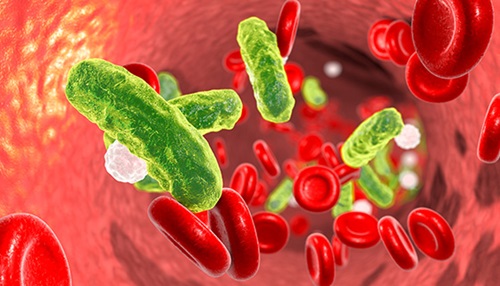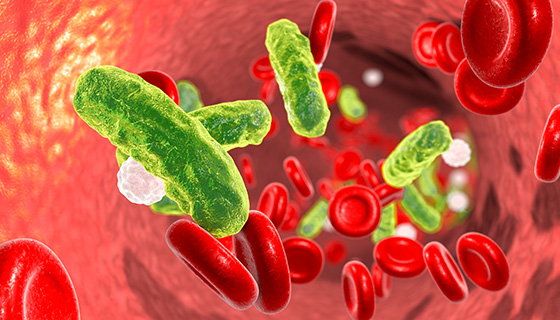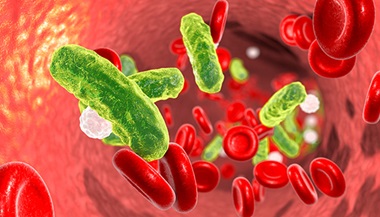Sepsis
What is sepsis?
Sepsis is a life-threatening infection of the bloodstream by toxin-producing bacteria, which can develop anywhere in the body. Sepsis can accompany meningitis, infections of the bone in hospitalized patients, intravenous lines, surgical wounds or breaks in the skin. In sepsis, blood pressure drops, resulting in shock. Major organs and systems stop functioning normally.
Symptoms
Symptoms include:
-
Confusion
-
Slurred speech
-
Rapid heartbeat
-
Shortness of breath
-
Clammy/sweaty skin
-
Severe chills with shaking
-
Skin rash
-
Has not urinated in 12 hours or longer
-
Extreme pain/muscle discomfort
Diagnosis
A diagnosis of sepsis is confirmed by a blood culture positive for bacteria, a white blood cell count either too high or low and/or other laboratory tests.
Treatment
Treatment for sepsis requires prompt intravenous treatment with a broad-spectrum intravenous antibiotic. The original source of the infection must be identified and then treated with the appropriate antibiotics.
What You Need to Know Sepsis Awareness and Prevention






